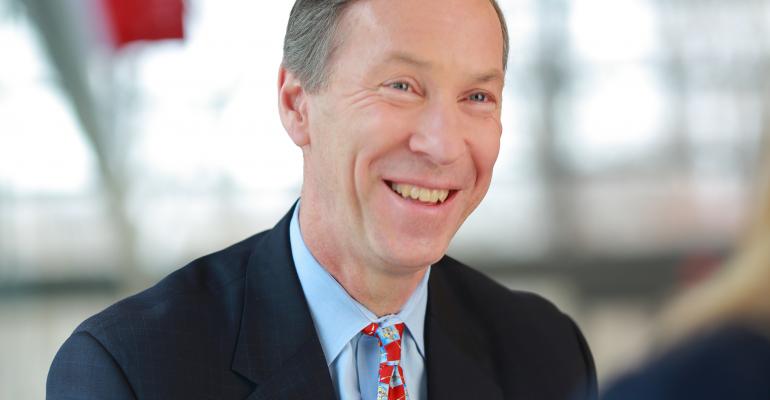By Ross Kerber
SCOTTSDALE, Ariz., Nov 15 (Reuters) - Vanguard Group Inc staged the largest-ever mutual fund shareholder proxy meeting on Wednesday facing a problem competing asset managers would welcome: how to manage rapid growth without losing its traditional low-cost appeal.
Years of strong inflows to its index funds and other products have helped drive the Pennsylvania company's assets to $4.8 trillion, up some $3.7 trillion from when it held its last broad fund meeting in 2009, and the growth shows no signs of slowing.
But in a cavernous hotel meeting hall here several fund shareholders asked how well the company is managing its growth and the role index funds have come to play in markets. Or, as one investor put it, what are executives doing to ensure "success doesn't go to your head?"
Vanguard chairman Bill McNabb acknowledged the issue and said the risk of growing complacent is "the thing we worry most about."
In a later interview he listed steps the company has taken such as adding 1,200 workers to improve balky service systems and lowering fees, in turn pressuring rivals known for more expensive actively managed funds.
Vanguard also defended passive products amid concerns that massive amounts of index-tracking money could either mute, or over-exaggerate, volatility or market valuations.
Greg Davis, Vanguard's chief investment officer, noted index products represent just 15 percent of global equity markets and account for 5 percent of daily trading volume on U.S. exchanges, leaving plenty of room for growth.
"We think indexing has a very long way to go before it can create any types of issues or distortions in the marketplace," he said.
Investors at the meeting accepted the message from the world's largest mutual fund company, which counts 20 million individual investors but under U.S. securities rules rarely needs to poll their views.
Just 205 individuals appeared for the gathering. But enough others cast votes online, by phone and mail to stage the event, and to easily elect all 12 candidates up for election as fund trustees including Tim Buckley, set to take over as chief executive on Jan. 1.
Investors also backed management on most administrative changes up for vote such as making it easier to hire and fire external investment advisors.
Vanguard said a shareholder measure seeking to limit investments in companies contributing to genocide or crimes against humanity was not approved by any funds. Support ranged as high as 39 percent at Vanguard's FTSE Social Index Fund and as low as 6 percent elsewhere. (Reporting by Ross Kerber in Scottsdale, Arizona; Editing by Meredith Mazzilli)






